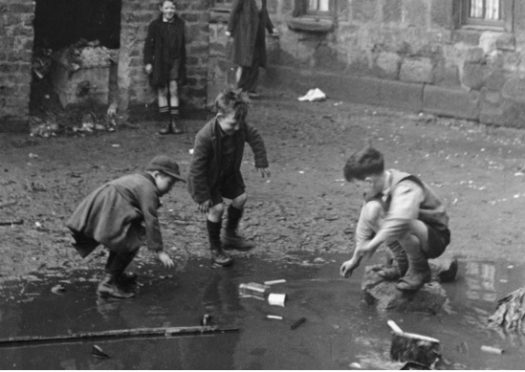
A failure to tackle poverty in Scotland is leaving generations of children at a higher risk of cancer in later life, according to a public health expert.
Dr Andrew Fraser, director of public health science at NHS Health Scotland, said it was a “tragedy” that child poverty was on the rise.
He warned action had to be taken to tackle the issue or risk creating a cycle where today’s young people are more likely to get cancer as they age.
He said: “Child poverty reduced in the 90s, so we know we can do it – it is rising again.
“That is a tragedy. It is a tragedy in terms of cancer, as you can trace a very clear link to the start in life and what eventually is the result.
“We have got to look very seriously about whether we support the people who earn least and have the greatest struggle to house themselves, look after themselves and their children.
“Because if we don’t, you will just create a cycle where there are young people growing up who are much more likely to get cancer as they grow old.”
Dr Fraser said the chances of developing the disease can be determined by where you live. He argued while advice can be given out on how to follow a healthy lifestyle, if you lived in an unsafe area or were struggling with money, “you are not going to follow any advice, however well motivated”.
According to statistics, more than a quarter of ill health and early deaths from cancer could be prevented if everyone lived in the same situation as wealthy people.
Dr Fraser also pointed out the impact of poverty on patients left struggling with financial difficulties after being diagnosed with cancer.
A study in Glasgow found the top concerns of people dealing with cancer were money and housing.
Dr Fraser said: “When you ask people with cancer what they need, they say they need help with money – in fact they say this three times more often that they say they need help with pain.
“Living with cancer is expensive – lost income, care expenses, travel and staying over for treatment – and people in poverty have less reserves (financially and sometimes emotionally) to mitigate that.”
Gordon McLean, programme manager in Scotland for Macmillan Cancer Support Scotland, said: “Treatments can go on for a long period of time – and the consequences of that treatment might still be affecting people two, three of four years down the line.
“Potentially people are not receiving sick pay and struggle to access benefits.”
A Scottish Government spokesman said: “The Scottish Government believes that child poverty is unacceptable.We are the only part of the UK to set statutory targets to reduce child poverty and are taking a number of actions to tackle poverty backed by a £50 million fund.”

Enjoy the convenience of having The Sunday Post delivered as a digital ePaper straight to your smartphone, tablet or computer.
Subscribe for only £5.49 a month and enjoy all the benefits of the printed paper as a digital replica.
Subscribe